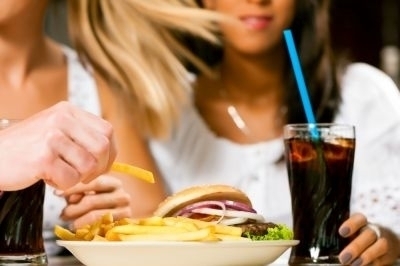
A team of French researchers has, for the first time, pointed out that the fatty substances contained in food could act like a hard drug on the brain.
These foods, which are also found in fatty meats, cheeses or “junk food” and which are responsible for overweight and obesity have in common to contain triglycerides or fatty substances of nutritional origin.
They also act on an area of our brain that is the “reward circuit” by controlling motivation and pleasure in eating. A circuit with a functioning similar to that found in taking hard drugs, according to the conclusions of a team of researchers from the Functional and Adaptive Biology Unit at Paris Diderot University.
Their work, published in the journal Molecular Biology, focused on the key role of lipoprotein lipase, an enzyme which is at the heart of this reward zone of the brain and which is used to break down food triglycerides.
To better understand this notion of pleasure food, they had to decipher its cerebral mechanism. For this, the researchers worked on mice, which they subjected to several tests.
After injecting small amounts of lipids into the rodents’ brains, they were able to observe a decrease in their motivation to accomplish a task in order to obtain a reward and a balanced diet between the two proposed sources: fatty foods and simple foods, such as if they seemed “satisfied”.
The scientists then eliminated this specific triglyceride enzyme by reducing its coding gene and were able to observe the opposite behavior: the mice showed an increased motivation to obtain a reward and turned to a diet richer in fats. Removing this enzyme would lead to obesity, the researchers said.
“At sustained triglyceride levels, the brain adapts to obtain its reward, similar to the mechanisms observed during drug use,” the latter explain.